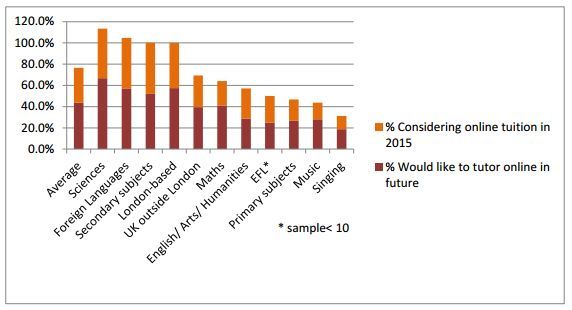How Online Statistics Help Enhance Learning for Different Learning Styles
Understanding the Challenges: Why Pupils Locate Statistics Tough and Just How Tutoring Assists
Data presents countless challenges for trainees. The ins and outs of foundational ideas, coupled with intricate terms, typically result in misunderstandings. Misinterpretations can stem from cognitive biases, especially in differentiating connection from causation. Individualized tutoring becomes a sensible option, offering tailored instruction that addresses individual discovering demands. As trainees browse these difficulties, they might uncover that the best support can change their understanding and attitude in the direction of the subject. What various other benefits might this strategy offer?
The Complexity of Analytical Concepts
Although analytical ideas are crucial for data analysis, their intricacy often postures considerable challenges for learners. Many pupils struggle to grasp foundational concepts such as possibility, circulations, and hypothesis testing. These concepts require not just mathematical skills yet additionally an understanding of their real-world applications, which can be abstract and unintuitive. The use of jargon and technical language additionally makes complex the learning procedure, making it hard for trainees to link theory with practice. Furthermore, the interaction in between different analytical techniques can result in complication, particularly when establishing the proper technique for a provided dataset. As learners try to browse these elaborate ideas, they may become overloaded, causing disappointment and disengagement. This intricacy necessitates effective mentor techniques and encouraging sources, such as tutoring, to aid students build self-confidence and accomplish a deeper understanding of statistics. Recognizing these challenges is the primary step toward helping with far better educational end results in the field.
Challenges in Information Interpretation
Data interpretation provides significant challenges that can hinder precise evaluation and decision-making. Pupils commonly have a hard time to attract significant verdicts from data because of a lack of familiarity with numerous analytical approaches and devices. Misinterpretation can develop from the frustrating amount of info, bring about confusion concerning which metrics are pertinent. Furthermore, cognitive predispositions might shadow judgment, triggering pupils to prefer information that confirms pre-existing ideas rather than assessing details fairly.
An additional difficulty depends on distinguishing connection from causation, a vital idea that can skew understanding of partnerships within data collections. The visual representation of data, such as graphes and charts, can sometimes misinform if not interpreted correctly, resulting in unreliable final thoughts. These barriers emphasize the relevance of creating strong data analysis abilities, as they are necessary for making educated choices in both real-world and scholastic contexts. Effective tutoring can offer the support needed to overcome these difficulties and foster better understanding.
The Function of Possibility in Data
Just how does chance shape the structure of statistical evaluation? Likelihood functions as a critical tool in statistics, permitting scientists to make reasonings concerning populaces based on sample information. By evaluating uncertainty, probability makes it possible for statisticians to approximate the likelihood of numerous outcomes, assisting in decision-making procedures. Chance circulations, such as the normal circulation, give important structures for understanding information habits and irregularity.
Additionally, principles like theory screening depend greatly on probability to establish the relevance of outcomes (Online Statistics Tutoring). This interplay in between probability and statistics aids in reviewing the validity of insurance claims and guiding further study. Understanding probability is important for interpreting analytical outcomes precisely, as it helps to contextualize findings within their more comprehensive uncertainty. A strong understanding of probability ideas outfits trainees with the analytical abilities required to tackle complex analytical challenges, cultivating a more profound understanding of the subject issue.
Usual Misconceptions Regarding Stats
What are some usual misconceptions that usually cloud the understanding of stats? Several people incorrectly believe that data just entails numbers, neglecting its conceptual foundations. Some think that useful source a little example size can produce trusted verdicts, overlooking the significance of depictive information. An additional common misunderstanding is the belief that relationship indicates causation, causing erroneous analyses of connections between variables. In addition, numerous students think that statistics is exclusively about computations as opposed to acknowledging its function in information interpretation and decision-making. Others might check out stats as an inflexible self-control, failing to value its flexibility in different contexts. Stats Tutor Misconceptions concerning analytical value, such as corresponding it with practical relevance, likewise contribute to confusion. These mistaken beliefs can prevent students' capability to understand analytical principles efficiently, often leading to stress and anxiety when engaging with the topic. Resolving these misconceptions is important for promoting an extra complete understanding of statistics.
The Advantages of Individualized Tutoring
Personalized coaching offers substantial advantages for students fighting with data, as it tailors direction to specific knowing styles and requirements. This personalized approach enables tutors to recognize details locations of difficulty and adapt their mentor approaches accordingly. By concentrating on the distinct obstacles each pupil encounters, customized tutoring fosters deeper understanding and retention of statistical ideas.
In addition, one-on-one communication supplies students with the chance to ask questions freely and receive prompt feedback, improving finding out efficiency. Individualized tutoring also assists construct confidence, as students progression at their very own rate without the pressure of a class atmosphere.

Regularly Asked Concerns
What Anticipation Is Required Before Studying Stats?
Prior expertise in fundamental maths, including algebra and arithmetic, is important before examining stats. Experience with principles such as data, variables, and functions analysis substantially boosts comprehension and application of statistical Check Out Your URL concepts in real-world scenarios.
How Does Innovation Impact Learning Data?
Innovation boosts learning statistics by providing interactive tools, simulations, and visualizations that clear up principles. On the internet systems allow collective discovering and access to sources, fostering a much deeper understanding of statistical techniques and motivating involvement amongst trainees.
Are There Particular Study Techniques for Learning Statistics?
Effective research techniques for grasping data consist of energetic technique with analytic, using visual help, developing study groups for collective knowing, and applying real-world instances to enhance understanding and retention of statistical concepts.
What Professions Need Strong Statistical Abilities?
Professions needing solid statistical abilities include data analyst, statistician, actuary, market researcher, and epidemiologist. These professions utilize statistical approaches to analyze information, inform decisions, and resolve complicated issues throughout numerous industries, enhancing total analytical abilities.
How Can Team Research Study Sessions Aid With Stats?
Group research study sessions improve understanding of data by promoting joint analytic, enabling diverse point of views on complex concepts, and cultivating an encouraging setting where trainees can clear up questions and enhance finding out through conversation and shared sources. Online Statistics Tutoring.
